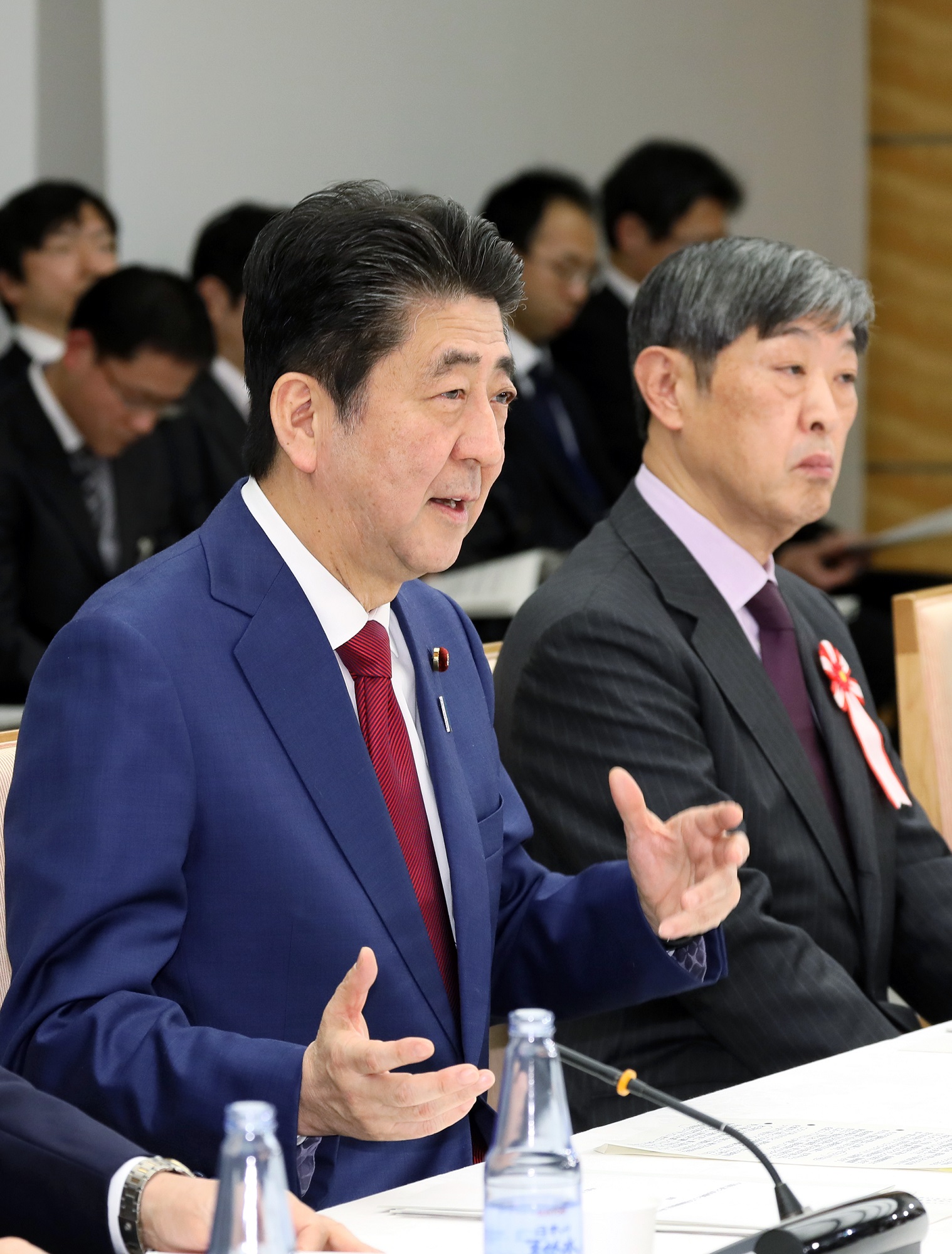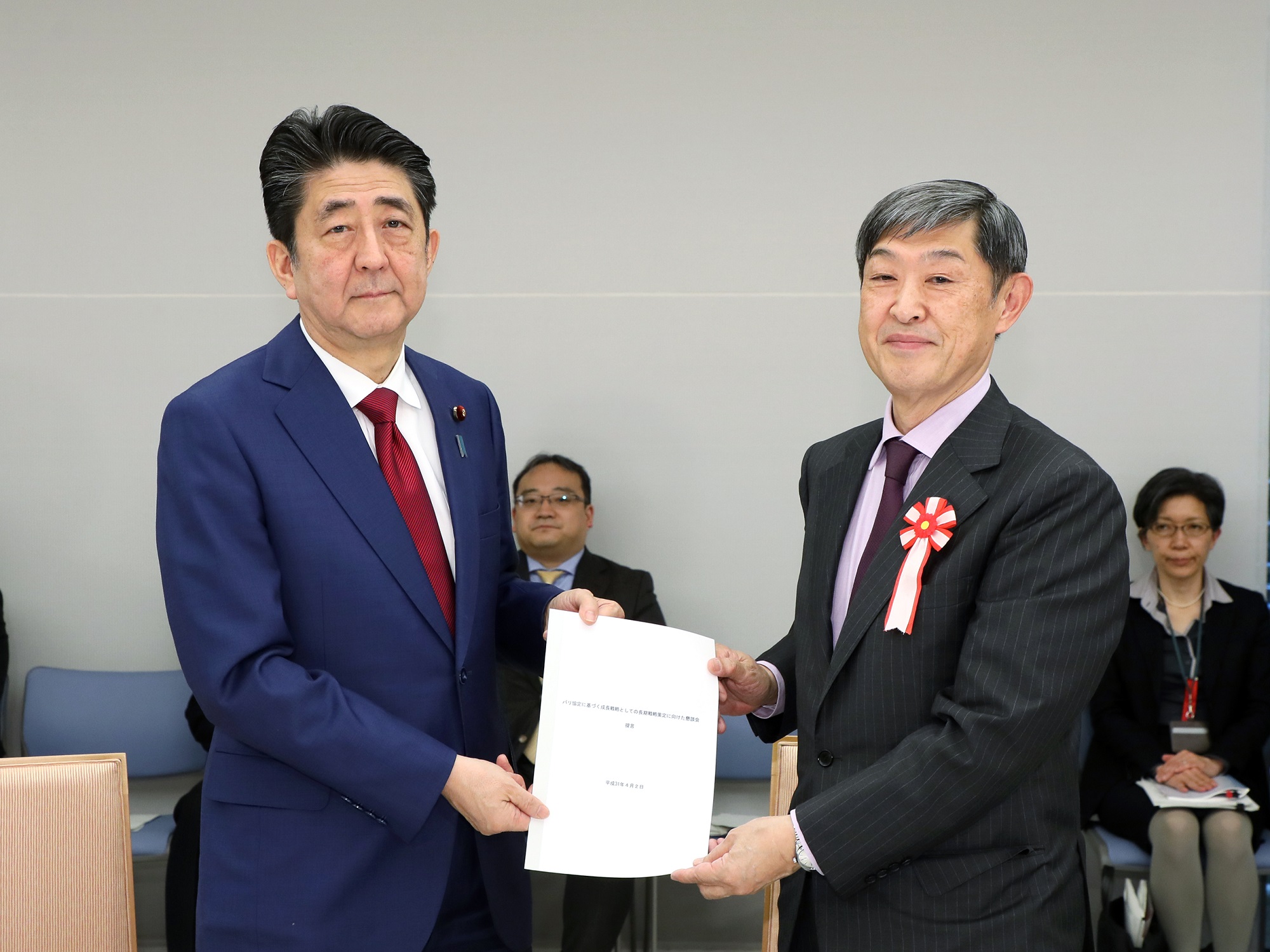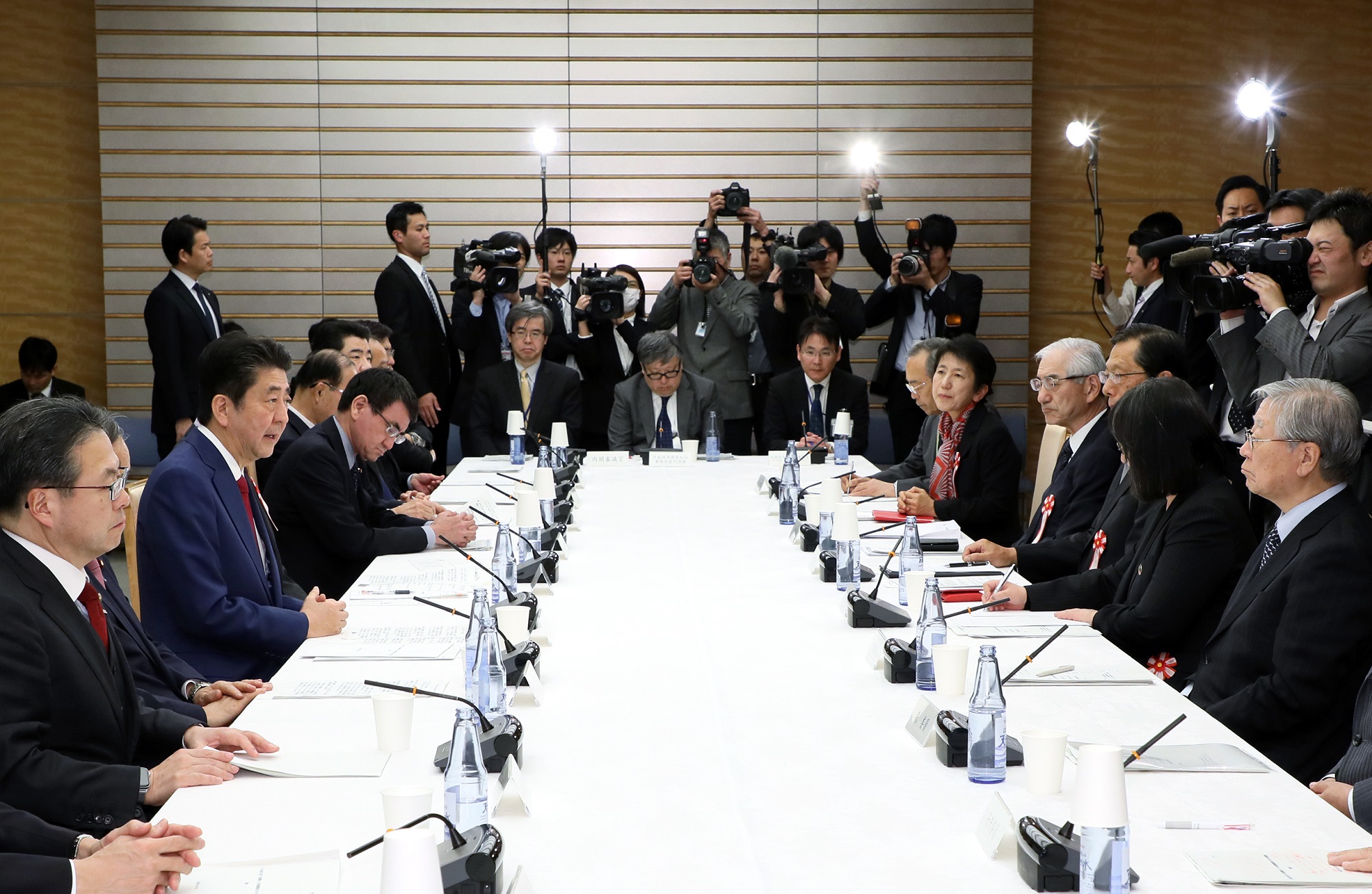Home > News > The Prime Minister in Action > April 2019 > Meeting on a Long-Term Strategy under the Paris Agreement as Growth Strategy
The Prime Minister in Action
Meeting on a Long-Term Strategy under the Paris Agreement as Growth Strategy
April 2, 2019
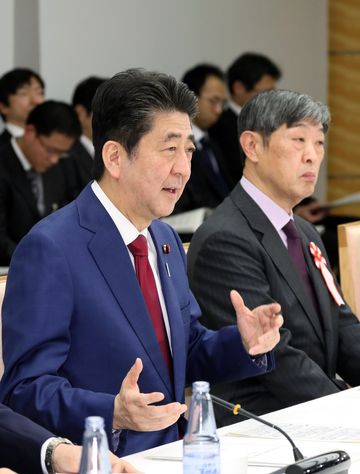
Photograph of the Prime Minister making a statement (1)
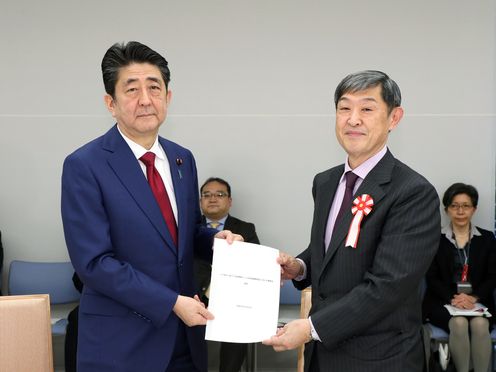
Photograph of the Prime Minister receiving the proposal
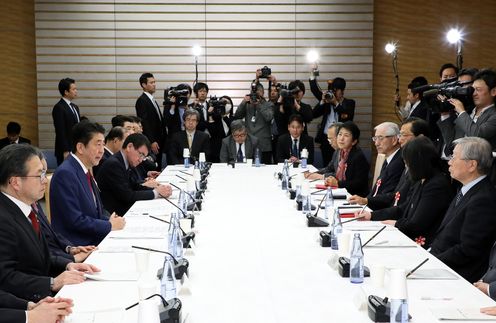
Photograph of the Prime Minister making a statement (2)
[Provisional Translation]
On April 2, 2019, Prime Minister Shinzo Abe held the fifth meeting on a Long-Term Strategy under the Paris Agreement as Growth Strategy at the Prime Minister’s Office.
At the meeting, a discussion was held on the proposal of the Meeting.
Based on the discussion, the Prime Minister said,
“I would like to express my appreciation for your enthusiastic engagement in a series of discussions since last August and coming up with this ambitious proposal.
We need to produce disruptive innovation that is not a mere extension of existing technologies so as to stand firm against the global issue of climate change and realize the ultimate vision of a carbon-free society.
Based on today’s proposal, I intend that the Government will formulate an innovative environmental innovation strategy based on the proposal within this year and commence its deliberations immediately. We will incorporate into this strategy initiatives to reduce the cost of hydrogen energy to less than one-tenth of the current level by 2050, in other words, cheaper than natural gas, and a detailed roadmap aimed at commercializing carbon capture and utilization (CCU) technologies, such as artificial photosynthesis, which utilize carbon dioxide effectively.
To produce groundbreaking innovations, it is necessary to bring together wisdom from around the world.
Japan holds the Presidency of the G20 Summit on Financial Markets and the World Economy and will use this opportunity to host RD20 this autumn, inviting the leaders of top research institutes from 20 countries to Japan. I intend that Japan will strongly lead global cooperation towards groundbreaking innovations through continuing this RD20 process next year and thereafter.
The most important key is the expansion of private investment. Now that the global financial flow is changing significantly, with environmental, social and governance (ESG) investment having increased by 1,000 trillion yen over the five years, we are seeing a great opportunity here. Following the approaches taken by the Task Force on Climate-related Financial Disclosures (TCFD), we intend to add momentum to the global financial flow by expanding information disclosure of corporate efforts in the field of the environment.
Moving forward, the Government will also formulate a guideline on green investment for financial institutions, following the one for non-financial corporations. Furthermore, we will host the TCFD Summit, which is a gathering of leading financial institutions and other businesses from around the world this autumn.
Measures against global warming are no longer a cost for companies. They are a source of competitiveness. Companies that actively fight against environmental issues attract funds from all around the world, enabling them to prepare for the next phase of their growth and take further measures. This is precisely an example of the virtuous cycle of the environment and growth – these two concepts of the environment and growth are not contradictory. Now, the economic policies under the Abe administration are materializing the virtuous cycle of growth and distribution. In the past, these two concepts used to be regarded as contradictory. Actually, as the economy grows and the wealth is distributed properly, that attracts the next round of investment and promotes further growth. In the sense that both powers circle around rather than collide against each other, companies are able to attract funds by being advanced in the field of the environment and improve their productivity through these investments, which resulted in further growth. I am determined to make a paradigm shift in global environmental policies by further accelerating the virtuous cycle of the environment and growth.
Under such views, I ask the relevant ministers to accelerate preparations with a view that the Government will determine its long term strategy based on today’s proposal before the G20 Osaka Summit.
‘Reiwa,’ the new era name just decided yesterday – the Chief Cabinet Secretary revealed it like this – is taken from a passage of the Manyoshu that depicts a beautiful spring scenery when the plum blossoms are in full bloom. These plum blossoms referred to the ones that appeared in the collection of 32 poems and their prologue, which were written in admiration of the plum blossoms in Dazaifu, the hometown of Minister of the Environment Harada. Japan has passed down its sensibilities to appreciate history from time immemorial, highly respectable culture, and natural beauty unique to each of our four seasons. I intend that Japan will take the lead in global efforts so as to pass on such a characteristic to the next generation and future generations thereafter. To this end, I ask for your continued support.”

